
Iran is Not Serious About Combating the Coronavirus
The editorial of Setareh Sobh explains why Iran, unlike China, has been unable to contain the coronavirus outbreak in the country.
When the coronavirus spread in China, the Chinese government quarantined the city of Wuhan and stopped its interactions with the rest of the world. But Mahan Air flights between Iran and China continued, and Iran’s cooperation with China didn’t come to an end.
Infected cities like Qom should have been put under quarantine. No such thing happened; instead, there was secrecy in this respect.
As the coronavirus outbreak happened in Qom, officials had to talk about it cautiously. According to Shia beliefs, Qom is supposed to be the “house of cure” and one of the gates of this city is said to open in Paradise. So no one dared to quarantine this city. Placing this city under quarantine required national resolve, which was beyond the powers of its mayor or governor.
Also, at the time of the coronavirus outbreak, Iran was getting closer to the 22nd of Bahaman rallies. It was the first state rally after the November popular protests. And following the protests, there were the parliamentary elections, and no one wanted to undermine the elections in the country.
As a result, the groundwork was laid for the coronavirus outbreak, and it spread to other cities from Qom. Today some countries – such as Saudi Arabia, Bahrain, Germany, Canada – claim that Iranian passengers brought the coronavirus to their lands.
Besides, poor coordination and no central command in managing the crisis paved the way for the virus to spread.
Now people do not trust the statistics announced by the Health Ministry, as recent events including the November protests and the downing of the Ukrainian flight by the IRGC have weakened public trust. Meanwhile, there is still no decision-making center in this regard, and naturally, the number of infections and death tolls are on the rise. With the armed forces entering the battlefield to combat the coronavirus, people have become hopeful. But the results are to be seen in the upcoming days.
Coronavirus Diplomacy With the Aim of Decreasing Tensions Between Iran and America
The editorial of Setareh Sobh sees the coronavirus outbreak in Iran as an opportunity to alleviate tensions between Iran and America in order to start talks between the two countries.
The global outbreak of the coronavirus has created a possibility for global cooperation among countries despite their political differences and animosity. Iran’s measures – including FM Zarif’s letter to the UN Secretary-General and requesting a $5 billion loan from the International Monetary Fund (IMF), as well as the letter of the Iranian Central Bank’s governor to the IMF – are steps in the right direction.
Such measures are more influential as organizations like the United Nations and IMF show more flexibility in cases of humanitarian crises. If the IMF and the United Nations do not take any steps in this regard, this will have a negative impact on their international public standing as it will be viewed as a failure to fulfill their duties in critical situations like that of the coronavirus outbreak.
On the other hand, Iran is a developing country and needs more help compared to advanced countries. Under these circumstances, these organizations should pay more attention to poor or developing countries.
In this context, the government has launched its coronavirus diplomacy. Even though it will probably not come to fruition under US pressure on the IMF and the United Nations, it is the right step.
This diplomacy can be fruitful and pave the way for negotiations between Iran and America in order to cancel sanctions on food and other items. America offered to give healthcare products to help Iran but this was met with a harsh reaction from Iranian officials, which was not the right response as during the coronavirus crisis, any help should be embraced.
Under the current critical conditions, can the coronavirus pave the way for talks between Iran and America in order to revoke sanctions on food and medicine? Even though the coronavirus is a temporary issue, it can help the two countries to alleviate the hostility, despite the serious differences that exist between them.
Will the IMF Respond to Iran’s Request for Money?
With the coronavirus widespread in Iran, Iranian officials have asked for help from the IMF. The editorial of Jahan Sanat explains the difficulties in this regard, saying Iran should either requesthelp from China or accept US aid.
The IMF is an international organization which forecasts and assesses the global economic situation. One of the main tasks of this financial institution is to help countries that are in critical condition through offering loans.
That is why Iran’s Central Bank governor and Iran’s foreign minister recently asked the IMF for $5 billion to fight the coronavirus spread in Iran. Besides, Iran’s healthcare system is at the frontline in fighting the virus.
Now the question is: will the IMF agree to pay this money to Iran? If so, how will the money become accessible to Iran?
The IMF or any other financial institution is afraid of whether this money will be spent on fighting the coronavirus or on other issues and regional goals. So the main issue in granting such a loan is lack of trust. The other issue is paying such an amount of money in accordance with a payment system. The IMF can only grant this aid in part, which means that it cannot pay this money to Iran all at once.
The other point is that the IMF will have certain conditions in providing aid to countries that are in critical condition. These conditions are so complicated that it would be almost impossible. In this regard, the IMF’s main condition is Iran ratifying the FATF bill and carrying out financial transactions within the SWIFT system.
It seems that the European SWIFT or INSTEX has not been implemented and there haven’t been any financial transactions with Iran within this framework. Now, under these circumstances, how should aid be granted and transferred to Iran’s Central Bank? Will the IMF agree to pay this money to Iran in cash?
Under these circumstances, it seems that Iran should forget about receiving this aid. Iran seems to have two options to defeat the coronavirus disease: it should ask China for help, which has created this serious problem for Iran. Or else, it must count on Washington for help, which since the coronavirus outbreak has sent signals announcing its readiness to help resolve the coronavirus crisis in Iran.
Confusion in Managing the Coronavirus Crisis
The editorial of Tejarat explains why as a result of confusion in managing the coronavirus in Iran, the situation has worsened in the country.
Iranian people are facing hard times: the coronavirus is ravaging the country and due to modern technology, people are exposed to devastating, heart-wrenching news every day. Social networks, despite their advantages in giving information, have become imbued with fake news: conflicting statistics regarding the number of deaths due to the coronavirus disease, genetic engineering of the coronavirus for biological war, killing the virus by drinking alcohol, and skepticism towards official statistics.
As a result, there is nothing but confusion in the news resulting in public disenchantment. Amidst the peak of the coronavirus epidemic, people do not pay attention to official recommendations. Meanwhile, Iranian President Hassan Rouhani promises everything will be normal and even mentioned an exact date for it!
All the aforementioned have fueled endless rumors. A look at the media with regard to the coronavirus crisis shows that those who are managing the crisis have not used the media to control the situation. And now the media mostly adds fuel to the crisis. We must truly believe that in this era, the media – particularly social networks – are very powerful, so it is necessary to control them during a crisis like this.
Poor management shows that Iran was confused in understanding the nature of the crisis. While the coronavirus was rapidly spreading across China and it was predicted that it would come to Iran, the decision-makers and policymakers were indifferent towards it and were not willing to inform and prepare the public through the media.
As for the coronavirus, several questions remain: Why were flights to China stopped late? Why weren’t there any educational and warning messages on city billboards? Why weren’t cities quarantined on time? Why weren’t disinfectant products like alcohol, hand sanitizers, and face masks manufactured and supplied? All these questions point to confusion in managing the coronavirus in Iran.

Doors of Holy Shrines in Qom and Mashhad Broken in Protest Against their Closure
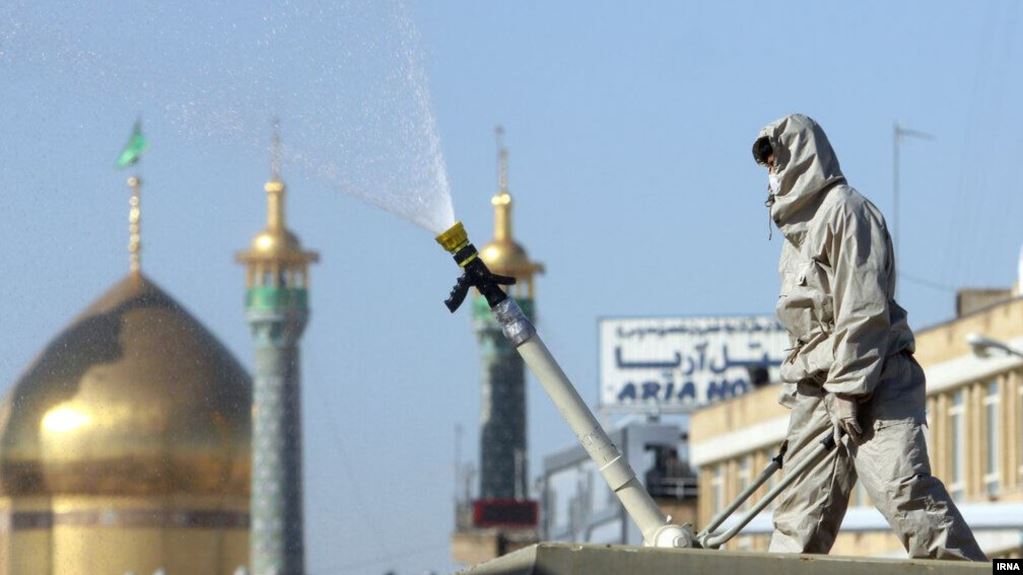
Following the closure of the Hazrat Masoumeh Shrine by the National Coronavirus Combat and Prevention Headquarters, a number of individuals attacked and broke its doors in order to enter.
Previously, the information center of this shrine had issued a statement, criticizing the governor’s office in Qom for cancelling mass prayers at the shrine and disinfecting it due to the coronavirus outbreak.
The statement claimed the structure of this shrine is “highly antibacterial and a firm obstacle to the coronavirus epidemic” due to the presence of silver in it. It also called this shrine “Dar-ul-Shifa” [house of cure] where people can come and receive mental and physical healing, adding that it should not be closed.
Parliament Member Ali Motahari has called for the “arrest and punishment” of those who broke the doors of the Hazrat Masoumeh Shrine in the city of Qom. In a tweet, Motahari called the attackers “brainless reactionaries.”
The city of Mashhad where the shrine of the eighth Shia Imam is located witnessed the same attack, when a group of individuals broke the protective fences and entered the shrine in opposition to the decision of the National Coronavirus Combat and Prevention Headquarters to close the shrine to stop the coronavirus spread.
Tehran’s Efforts to Change the Coronavirus Threat into a Monetary Opportunity
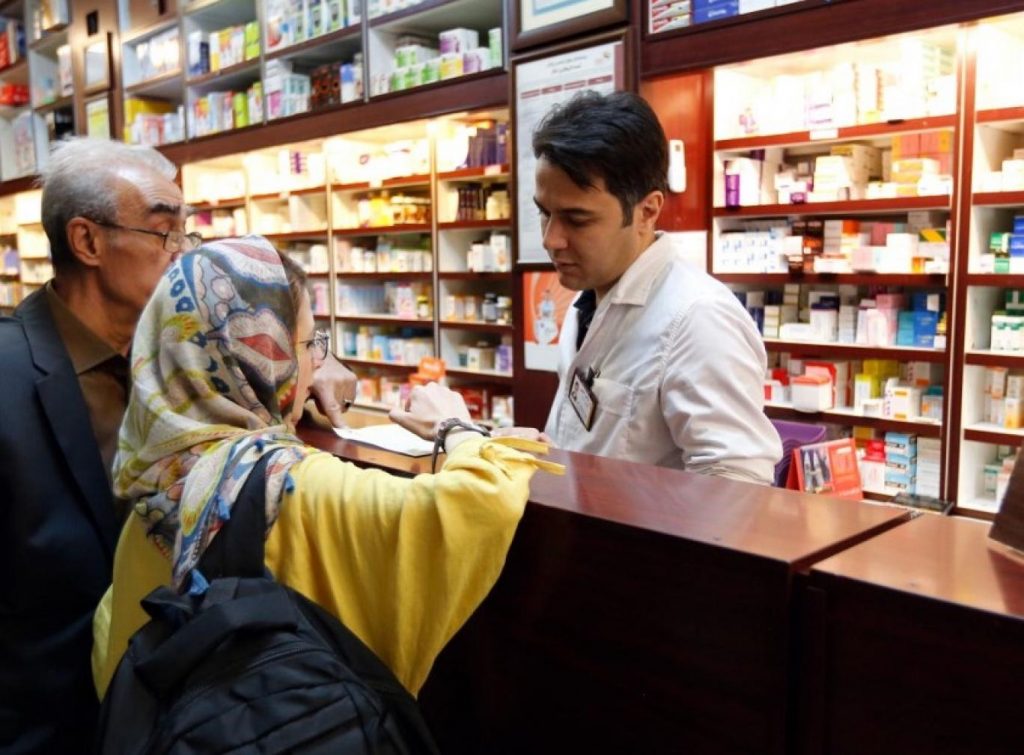
FM Mohammad Javad Zarif, in a letter to the UN Secretary-General, called for lifting sanctions on Iran, claiming that due to the sanctions, medicines, medical equipment and humanitarian goods are not sold to Iran, which is a major problem in fighting the coronavirus disease in the country.
Iranian President Hassan Rouhani, in a letter to some national leaders, asked them to help Iran in dealing with the sanctions, now that Iran is grappling with the coronavirus outbreak. He too claimed that the US sanctions have impeded treatment for those infected with the coronavirus in Iran.
Some other Iranian officials including the speaker of the Parliament Ali Larijani too made similar claims. Tehran mayor Pirooz Hanachi went so far as to claim that because of the US sanctions, the plan for quarantine cannot be enforced.
There is no doubt that the sanctions have put additional pressure on Iranians and Iran’s economy. But to what extent are the claims of the sanctions impeding the supply of medicine and medical equipment to Iran true? When the government’s currency allocated to importing medicines is used in importing electricity cables, cigarettes, and household appliances, then naturally corruption, rent seeking, and the medical mafia in Iran play a bigger role in this crisis than the sanctions.
The United States has always claimed that humanitarian goods, medicine, and medical equipment are exempt from tUS sanctions.
Before the coronavirus outbreak, a humanitarian channel worth $2.5 million was activated by Switzerland to send humanitarian goods including anti-cancer drugs to Iran. On the other hand, the US secretary of the treasury recently mentioned that there is no ban on sending medicine, medical equipment, and humanitarian aid to Iran to fight the coronavirus outbreak. The US president and secretary of state also suggested helping Iran, which was rejected and called ‘hypocritical’ by Tehran’s officials.
Iran’s isolation results from its regional, nuclear, and missile policies. Now Tehran is trying to change the coronavirus threat to an opportunity in order to gain financial resources.
Undoubtedly, the US sanctions have hit the Iranian people hard, but significant weaknesses in managing the crisis cannot be covered up under the “impact of sanctions.”
Al-Mustafa University Slams a Top Sunni Cleric Over his Coronavirus Remarks
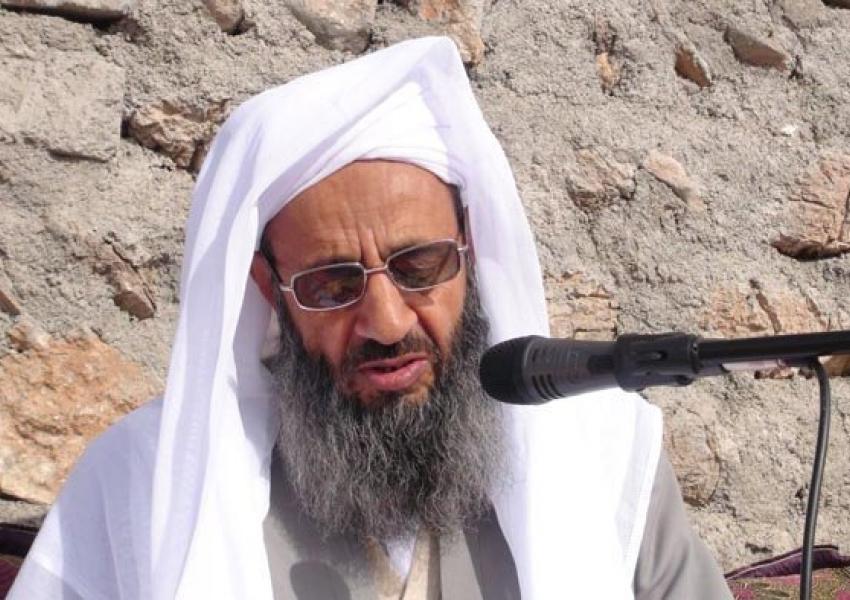
Following the remarks of Molavi Abdul Hamid, Zahedan’s Friday prayers leader, about the coronavirus disease entering Iran through Chinese seminary students in the city of Qom, he came under mounting pressure from clerics and religious institutes close to the Islamic Republic.
Abdul Hamid pointed to how the coronavirus disease entered Iran through Chinese religious students at Al Mustafa International University in the city of Qom.
This educational institute was established by the Islamic establishment in Iran to promote Shiite Islam in other countries. It is located in the city of Qom and has 60 branches in other countries. Al Mustafa’s officials say that currently 100,000 religious students from 136 countries including China are studying at this institute.
Abdul Hamid also slammed Al Mustafa University for receiving the highest budget in the country, adding, “thousands of students who know nothing about their religion go to this place and are brainwashed.” He also said that some students of Al Mustafa have gone to him, saying they want to return to their countries, but their passports have been confiscated.
Al Mustafa issued a statement in reaction to Abdul Hamid’s remarks, calling them “inconsiderate” and “abusing one’s position.” This institute has also denied reports about the coronavirus entering Iran thorough Chinese religious students.
Some clerics in the city of Qom too have reacted to Abdul Hamid’s remarks.
A Lawmaker Berates Officials for not Quarantining Qom: They Have Traded People’s Lives due to Superstitious Beliefs
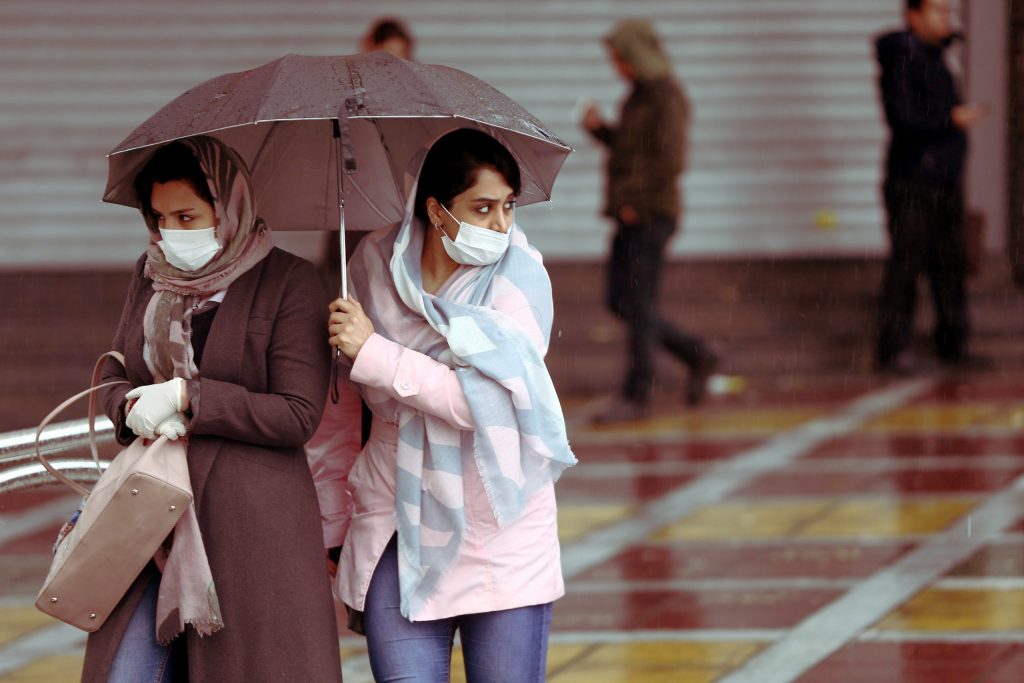
Parliament member Parvaneh Salahshouri has severely criticized the authorities for not putting the city of Qom under quarantine, saying they have traded people’s lives due to some “superstitious beliefs.”
“Authorities could have quarantined Qom immediately from the very beginning instead of denying the truth, so that this virus would not spread in other cities,” asserted Salahshouri.
In an interview with Jahan-e Sanat daily, this Tehran parliamentary representative also called for prosecuting Iran’s state TV and radio (IRIB) for calling the coronavirus epidemic a rumor before the country’s parliamentary elections in February.
In addition to the IRIB, Salahshouri slammed Mahan Airlines for continuing its flights between Iran and China despite the coronavirus outbreak, saying if this crisis had happened in another country, such an airline would have been held responsible as the major cause of the disease’s spread and prosecuted.
She then said Iranian authorities are good at doing three things: secrecy, telling lies and politicizing everything. “And if the authorities are unable to keep some issues secret or lie about them, they resort to conspiracy theories,” noted Salahshouri.
A Cleric Denies a Fatwa on Buying the Coronavirus Vaccine From Israel
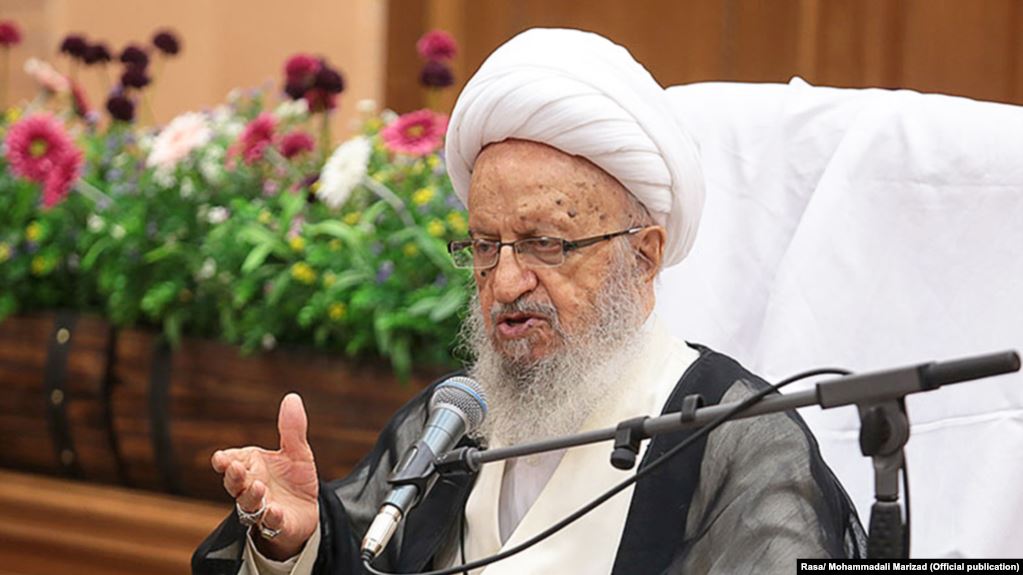
Ayatollah Nasser Makarem Shirazi, a Shiite source of emulation, has denied his fatwa on buying the coronavirus vaccine from Israel.
This cleric was quoted as saying in an interview with Hamdeli newspaper last week that if Israel was the only country able to develop a vaccine for the coronavirus disease, then there would be no problem for Iranians to use it.
However, the IRGC-affiliated Fars News Agency said the report was an “utter lie” published by “malicious” individuals.
Following the news announced by Migal Galilee institute in Israel about developing an effective vaccine for coronavirus within a few weeks, Hamdeli newspaper published an article posing this question: Is Iran, as a Muslim country without any political or economic relations with Israel, allowed to use this vaccine?
In reply to that question, the office of Ayatollah Makarem Shirazi said to this newspaper: “If it is certain that the interests [of the vaccine] belong to Zionists and Israel, then buying or selling it is not permissible, unless it is the only way of treatment for the disease and no other alternatives exist. In that case it has no problem.”
